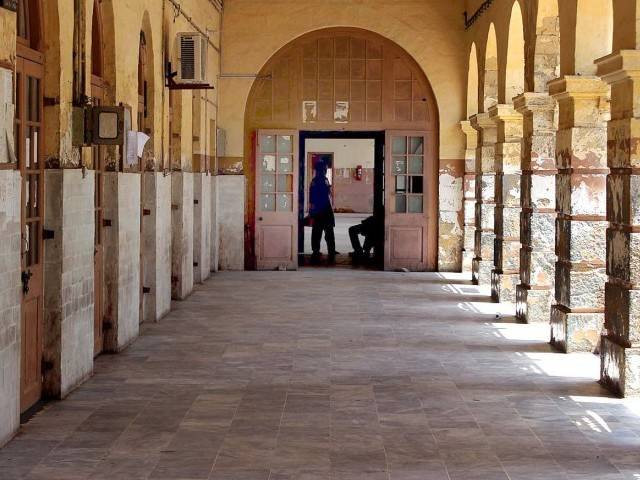Improving performance: Province-wide review of district courts begins
There are 128,765 civil and criminal cases pending in lower judiciary in Sindh

PHOTO: INP
An inspection to check the availability of judicial officers, court staff and public facilities at the lower judiciary across the province is presently under way.
Sources told The Express Tribune last week that Sindh High Court (SHC) Chief Justice Sajjad Ali Shah has tasked the member inspection team (MIT) to carry out reviews of lower courts in each district of the province.
Currently, there are 560 district and sessions courts, additional district and sessions courts, civil courts and courts of judicial magistrates functioning in 29 districts of Sindh.
Judicial officials said the inspections are part of the higher judiciary’s efforts to ensure speedy justice for the public and early disposal of pending cases.
“There are 128,765 civil and criminal cases pending in the subordinate judiciary across the province,” a judicial officer privy to the development told The Express Tribune on condition of anonymity.
The provincial judiciary has been struggling to clear the backlog of cases, which stood at over 167,000 at the end of last year. The inspections have been termed another step forward in this regard.
“The chief justice has ordered province-wide inspections to check the strength of judicial officers and staff, provision of basic facilities for litigants and overall performance of the courts,” the officer explained.
Chairman of the MIT, retired Justice Zafar Ahmed Khan Sherwani, is personally conducting the inspections. In the first phase, inspections were carried out in five districts of Karachi: East, West, South, Central and Malir. Inspections in the rest of the province are expected to begin later this week.
The sources explained that during the inspections, each district and sessions judge, who is head of the district judiciary, is required to submit details of available infrastructure, strength of judges and staff, finances and functioning of special courts set up under the Juvenile Justice System Ordinance, 2000 and the Small Claims and Minor Offences Ordinance, 2001.
Regarding infrastructure, each district and sessions judge is being asked to provide information related to the condition of courtrooms, judges’ chambers, transport provisions for judges and court staff, sitting areas for litigants, including availability of toilets, library, furniture, computer hardware and training of IT staff.
The SHC has also directed district and sessions judges to share details regarding the sanctioned and working strength of each court, working capacity of judicial officers, future requirements to increase the sanctioned strength and construction of new courtrooms at the district headquarters and taluka headquarters in each district.
Under the high court’s directives, each district judge will also inform, in writing, about the current strength and grades of all court employees, their service structure, service books, recruitment policy, future expansion plans, disciplinary actions taken against employees, appeals against disciplinary actions, the seniority list and promotion policy.
The judicial officers are also required to provide details about the present district budget, adequacy of funds and their requirement, if any, with justification, provision of stationery and other basic requirements for offices and the judges.
Prisoners’ production
Judicial officers will also inform the inspection team about the availability of locks-ups, including those for women, in their jurisdictions and the percentage of production of under-trial prisoners, including women and juvenile offenders.
Probation offenders
The SHC has also sought details regarding the working of probation officers, steps taken to sensitise judicial officers on the application of probation laws and conducting meetings between judges and probation officers of each district. “The district and sessions judges will submit details regarding the total number of convicts who have been released on probation in their respective district,” said the officer.
Bench-bar ties
The judicial officers will also inform the inspection team whether committees have been constituted in each district to work on improving bench-bar relations.
They will also share information regarding constitution of the legal empowerment committee at each district, procedures adopted for its working, funds received for it from the law and justice commission and their utilisation.
Published in The Express Tribune, April 6th, 2016.



















COMMENTS
Comments are moderated and generally will be posted if they are on-topic and not abusive.
For more information, please see our Comments FAQ